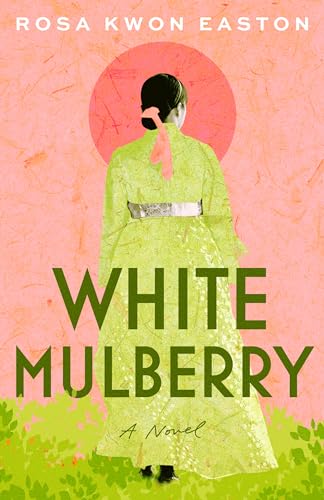White Mulberry
In 1928, Korea is choking under the iron heel of the Japanese occupation. A village girl from an impoverished family has few choices. But one girl, eleven-year-old Miyoung, is different. She was born in the Year of the Dragon; she has dreams, and she will fight for them. White Mulberry is the story of her remarkable life.
It is also a story rich with social and political commentary, told through Miyoung’s eyes as she grows into a woman, finds a professional calling, and navigates the complexities of immigration, love, marriage, and family in turbulent times. The story begins with her mother acquiescing with alacrity to a marriage offer for Miyoung’s elder sister. Miyoung hopes for a better future, one in which she can study “like the boys”. Perhaps she can even marry by choice? The precocious girl finds a guardian angel in a teacher who steers her forward and introduces her to Christianity.
As fate will have it, Miyoung must follow her sister into Japan. Her mother insists that this is the path to a better future: “At the end of hardship comes happiness.” In pre-World War II Japan, Miyoung is in an increasingly strident society where xenophobia dictates that she must efface her Korean origins in public.
Miyoung’s grit is tested through many twists as she struggles to realise her aim of carving out a life of dignity. A flashpoint arrives when she is issued a draft letter calling on her to report for war duties. She must choose between the straight and narrow, and the crooked but familial.
The author’s original voice is only slightly marred by a few clichés and the sweeping narrative by an ending which is too facile. Though comparisons to Pachinko are inevitable, this is a unique historical novel with many well-knit threads.










